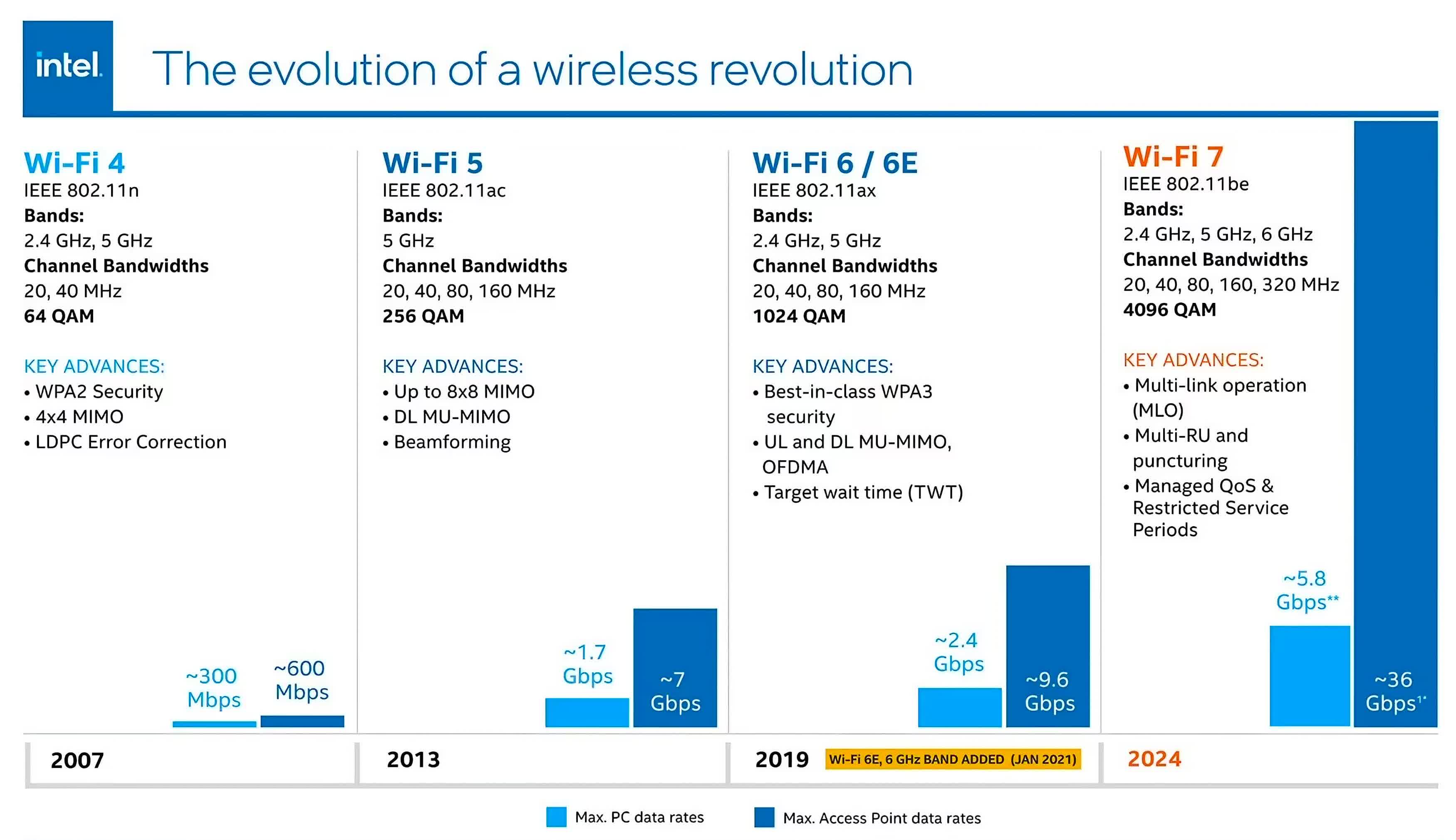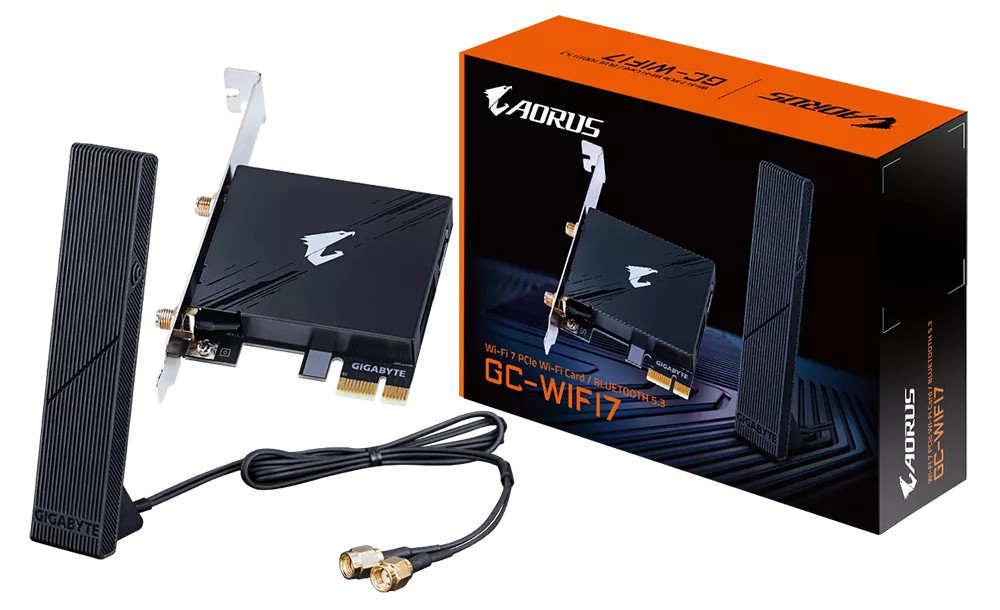Why it matters: Hardware vendors have been offering Wi-Fi 7 capable devices based on draft specifications for some time. The final release of the standard was anticipated for 2024 and with a clearer timeline now available, more manufacturers like Intel are expected to soon unveil products that utilize Wi-Fi 7's enhanced bandwidth and stability.
The Wi-Fi Alliance has confirmed that the final Wi-Fi 7 standard will be released before the end of the first quarter of 2024. It promises to deliver multi-gigabit speeds and other improvements compared to the current Wi-Fi 6 standard.
Intel and Broadcom showcased Wi-Fi 7 speeds last year (also known as 802.11be) reaching up to 5 Gbps – significantly surpassing Wi-Fi 6's typical maximum of around 1.7 Gbps. Wi-Fi 7 achieves this by allowing seamless switching between the 2.4GHz, 5GHz, and 6GHz frequencies, which compatible devices can juggle simultaneously.
Additionally, the 6GHz spectrum offers access to 320MHz superwide channels, doubling the throughput compared to Wi-Fi 6 – a key factor in the speed increase. The new standard also enhances transmission rates by 20 percent by upgrading from 1024 QAM to 4K QAM.
Wi-Fi 7 connections are also expected to be more stable than previous specifications. The multi-link operation intelligently balances traffic, enabling networks to accommodate more devices efficiently. The Alliance suggests that the new standard will be ideally suited for augmented and virtual reality applications. The FCC's recent preliminary approval for ultrafast Wi-Fi tethering on the 6GHz spectrum is a significant step towards enabling VR and AR equipment to utilize Wi-Fi 7.
The 2024 launch date roughly matches Intel's predictions from 2022. The company plans to release Wi-Fi 7-capable PCs starting next year, with widespread market availability in 2025. Qualcomm is also optimistic about Wi-Fi 7, incorporating it into its FastConnect program alongside 5G.
Since last year, other manufacturers have been jumping the gun using draft specifications, including the likes of Netgear, TP-Link, Asus, Amazon, and Gigabyte. Amazon launched the $600 Eero Max 7 router in September, boasting wireless speeds of up to 4.3 Gbps. The $1,700 three-pack system can cover up to 7,500 square feet.
For those looking to upgrade their desktops for Wi-Fi 7, Gigabyte's recently announced PCIe adapter is an option. The single-slot card offers speeds of up to 5.8 Gbps and includes all official specification features from the Alliance, though its pricing and availability are yet to be confirmed. Motherboards supporting Wi-Fi 7 from most major manufacturers are now available for those starting new builds.


